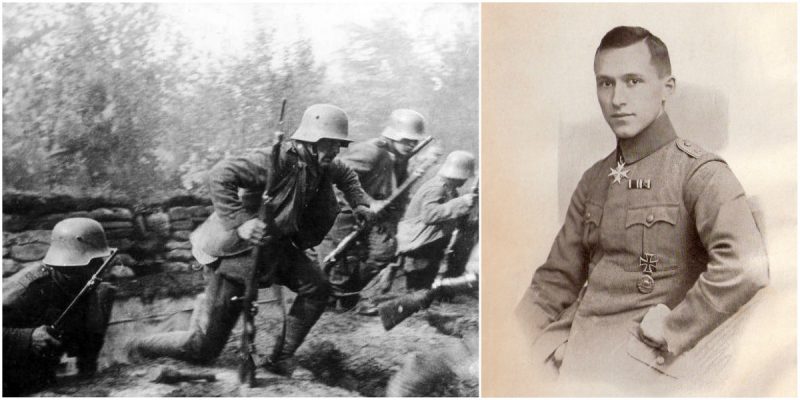Erratic life stories full of adventure and risk-taking are usually thought to be the property of liberal oriented minds. Not in the case of Ernst Jünger, a German conservative whose quest for the meaning of life repeatedly led him to the brink of death.
Jünger was born in 1895, to a well-off family. As a young boy, he became passionate about adventure novels and nature, while as a teenager he joined the Wandervogel movement of bohemian poets. In 1913, he decided it was time to break some rules in practice, so he broke the law and enlisted with the French Foreign Legion. This first adventure didn’t last long – he fled the training camp, but soon after being caught his father managed to get him back to Germany.
Months later, WWI broke out and the 19-years-old rebel decided to volunteer for the German army. His behavior during the course of the war was an example of things to come. In four years, he was wounded eleven times, always looking for a way to get back to the frontlines.
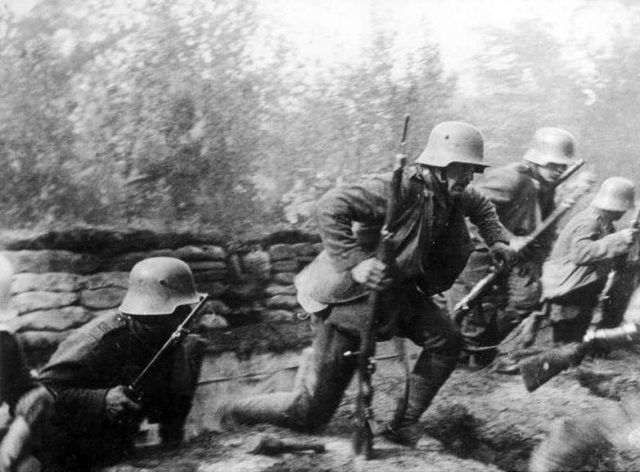
His bravery and incredible dedication earned him many medals and promotions and made him one of 700 men to receive the highest military decoration, Pour le Mérite. He was among just eleven infantry company leaders to receive this order, all others being high-ranking officers and combat pilots. But, honors weren’t what he was really after.
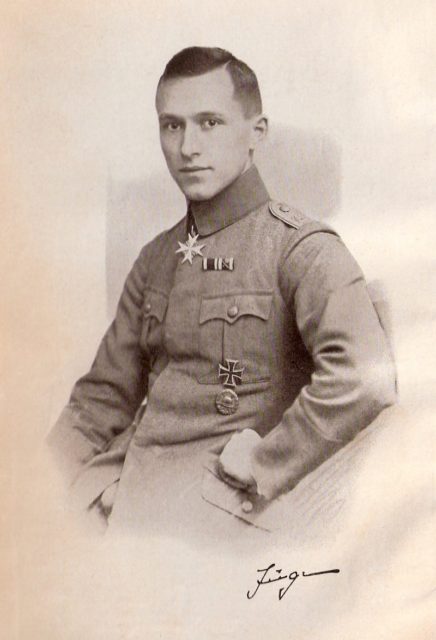
In 1920, he published a novel titled Storm of Steel, based on his war diary. In the coming years, this work will grant him national recognition and push him to write tirelessly. His thinking was heavily influenced by the likes of Nietzsche and Schopenhauer, whom he read during the war in constant search of what really constitutes a man. But his wartime experience proved decisive – for him, it was a mystical experience, the very essence of what constitutes modern life.
This line of thinking was somewhat popular in the inter-war years in defeated Germany. It stroke a chord with many dissatisfied soldiers and generals who gave it all on the battlefield only to be humiliated by what they figured were meek forces of liberalism and democracy. This was the intellectual climate in the conservative circles that proved fertile ground for the Nazi ideology of blood and soil. Jünger himself openly despised democracy, but even though he regularly wrote for right-wing press, he never succumbed to Nazism.
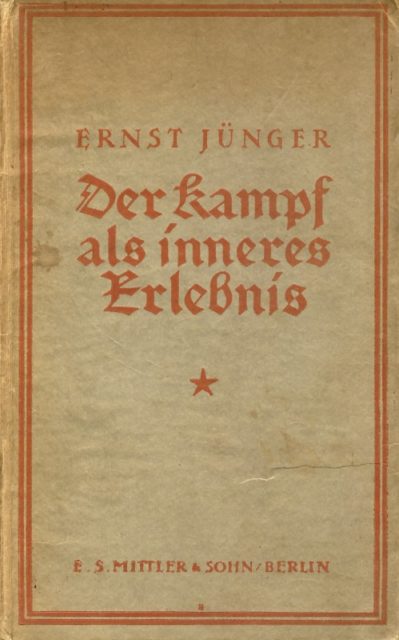
The rise of Hitler’s party to power and the following anti-Semitic purges were a lifetime opportunity for many hard conservatives from military circles and beyond to advance in their careers. Jünger was not among them. He repeatedly declined offers from the Nazi Party to become its representative in the Reichstag or to be given high posts in Academy. He even went so far as to write a letter to the party’s official newspaper, demanding that they never publish any of his writings and quit his veteran’s organization after the purge of Jews from its ranks.
His popularity and impeccable service record superseded his opposition to the vicious Nazi regime. Thus during WWII, he was given an administrative position in Vichy France, which he used to hang out with the likes of Picasso and Cocteau, but also with some dissident German officers. He was generally perceived as a hero among the conservatives in the military who disliked both democracy and Hitler. After some of them conducted the famously failed assassination against Hitler, he was put on trial. Unable to convict him of direct involvement in the plot, the court settled with dismissing him from the army. Once again, Jünger stared right into Death’s eyes and made it look away.
After the war, the ruling Communists in Eastern Germany were next in the line of those who wanted him out of the picture. But his principled anti-Nazi conservatism led to the support of the famous Communist writer, Bertolt Brecht, who famously stated: ‘Leave Jünger alone.’ During the 1950s, his public image was rehabilitated and he continued publishing his works, becoming a literary legend in Western Germany. In 1978–1983, he became the fourth German ever to have his collected works published twice during their lifetime.

The Nietzsche line of thinking led to friendships with conservative intellectuals such as Martin Heidegger and Carl Schmitt. But his relentless spirit opened him up for experiments with different types of drugs – from hashish to cocaine, mescaline, and LSD. Some of his experiences ended up in bookstores, while others were written down by none other than the father of LSD and Jünger’s trip accomplice, Albert Hoffman.
Persistent rebellion against the modern world order, wartime experiences and hallucinogens were a basis for the works such as The Glass Bees (1957), in which he envisioned a dystopian future where the individual is crushed by the world run by the machines. This made him one of the forerunners of magical realism and science fiction. His popularity reached well beyond German frontiers. He was extraordinarily popular in France, where at one point 48 of his works were in print. French conservative Right wasn’t his sole readership – French Socialist president François Mitterrand was probably the most popular fan of his work.
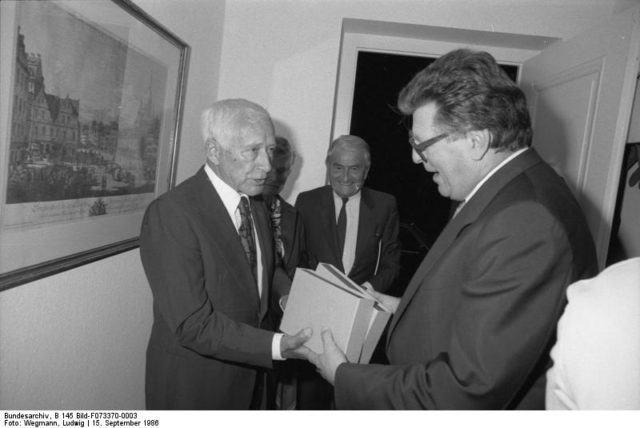
Even though he frequently insisted that he would never take back anything he ever wrote, during the 1984 Franco–German ceremony held at Verdun, he stated that the German ‘ideology of war’ – the one he was so eager to develop in his earlier years – was ‘a calamitous mistake’. A year prior to his death in 1998, he embraced Catholicism.
Most of his 102 years of life, Ernst Jünger spent searching for the answers to the modernity’s grave problems. Whatever one might think of the angles he chose, his will to keep fighting and trying is an inspiration. As he once noted, ‘What doesn’t kill me makes me stronger; and what kills me makes me incredibly strong.’
